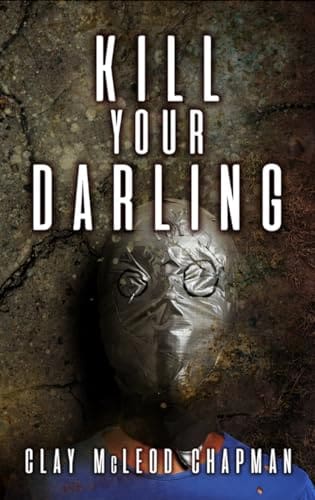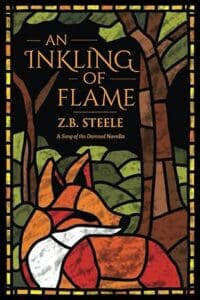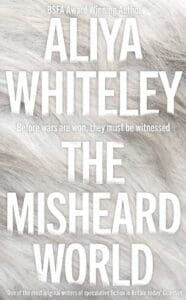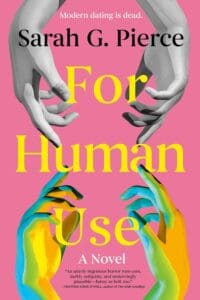
Synopsis:
The body of Glenn Partridge’s 15-year-old son was discovered in a vacant lot nearly forty years ago. The police are still no closer to finding the murderer decades later.
Glenn refuses to let the memory of his son fade—or let anyone else within this small working-class community forget. His long-suffering wife signs him up for an amateur fiction-writing workshop at the local library, just to get him out of the house and out of his own head.
Rule number one: Write what you know—so Glenn decides to share his son’s story. The class offers him a chance to make sense of a senseless crime and find the fictional closure life never provided. But as Glenn’s story takes on a life of its own, someone from the past is compelled to come out of hiding before he reaches…
The End.
Review:
Well, he’s done it again. In his latest (“Kill Your Darling,”) Clay McLeod Chapman dives back into the murky waters of memory and guilt- themes first explored in his stellar novel “Whisper Down The Lane”- this time packing the emotional punches into a far more compact but equally soul-destroying novella. Do not be deceived by his joyful online presence; when he’s not chanting at Christopher Golden’s “House Of Last Resort,” weekend, or running laps at Authorcon, or indeed, terrifying shoppers at Forbidden Planet, Chapman is concocting the most devastating, disturbing and heart-breaking content in horror. Not that I think you’re ready, but this bad boy becomes available in September- thank you Doug at Bad Hand Books for the ARC!
Glenn Partridge was once a happy husband and father- but that was back then. Now in his 70s, Glenn is haunted by a devastating act of violence from 40 years ago that left his son forever a teenager. On his way home from a school dance, it seems Billy Patridge was cornered- suffocated by layers of duct tape. Who is capable of something so despicable? Well, no one knows, and it seems no one cares. No one other than Glenn, who obsessively calls up the local police department asking for developments. Having had enough of his moping, his wife Carol signs him up for a creative writing workshop- where he is told to “write what you know.” To everyone’s surprise, Glenn throws himself into this project, but when we learn that his story is autobiographical, we have to ask whether this is a cathartic exercise that will help provide closure, or a terrible idea that might just push him over the edge.
One way in which Carol and Glenn memorialise their son is via a scrap-book. A complete record of each achievement earnt and milestone reached in Billy’s limited time. This allows Chapman to explore the theme of memory and interpretation. Glenn and Carol choose to remember him fondly- through all the happy days they had, immortalised forever through “The Book of Billy.” The scrapbook aims to create a tangible legacy in the face of mortality- to act as a bulwark against the erosion of memories overtime. Ironically, the book, intended to preserve the truth, ends up distorting Glenn’s grip on the reality of his son’s life and death- perhaps ultimately commenting on the fragility and subjectivity of the human memory. This suppression- as an attempt to shield himself from the trauma of his son’s death- of course ultimately refers to the central theme: grief, and how it can distort reality.
Reading from the first person perspective of Glenn absolutely works in the story’s favour. Glenn and Carol are so human, and so broken by the loss of their child (an understandable yet unimaginable pain) that you want closure just as much as they do. The flirtatious banter between the two of them really make it difficult to believe that this is a fictional couple. As the story develops, the urgency builds and Glenn’s desperation for closure intensifies, we feel a similar pain… and a similar madness. Reading Glenn’s unfiltered thoughts, forces us to confront the possibility that he and us both have lost our grips on reality. Do we actually learn what happened to Billy? Did Glenn ever actually attend a writing workshop? Did he have a son in the first place? Yes ok, admittedly that’s a reach… but you’ll have to excuse me… I think my brain is still recovering from the psychological turmoil Clay has subjected it to.
In conclusion, if you’ve been feeling a little too happy recently, “Kill Your Darling,” is the perfect antidote. Here, the truth is a slippery eel, and the race between closure and madness is relentless- even as the dust settles, I can’t be sure which won.








thanks for sharing this post